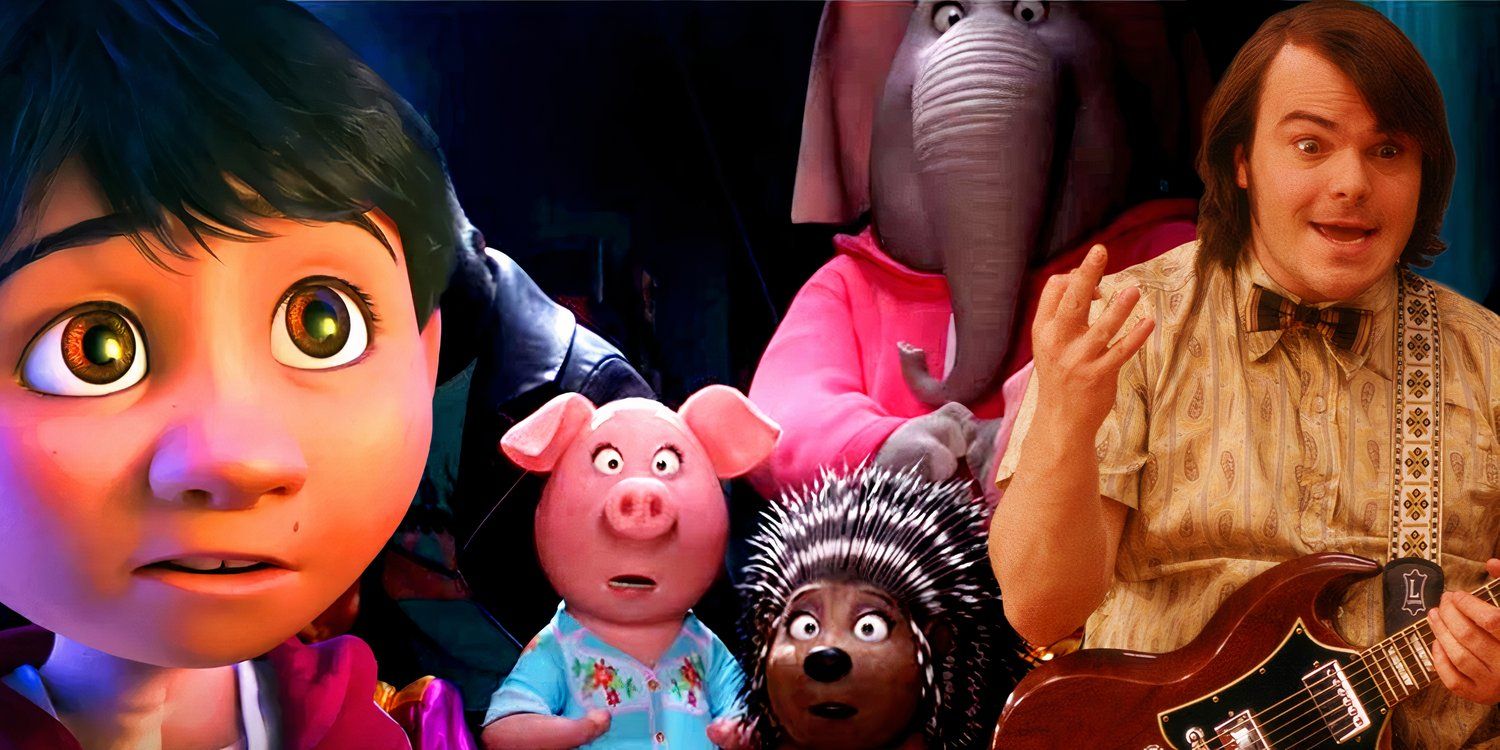The 19th edition of Indonesia’s Jogja-Netpac Asian Film Festival (JAFF) was its most successful one yet and the inaugural JAFF Market proved to be an auspicious debut. Variety was present to report on both.
To put matters in context, films from Indonesia now routinely get selected and win prizes at major international festivals. The local market in Indonesia, which has the fourth-largest population in the world with 283 million, is rapidly expanding with homegrown productions accounting for a significant share of the local box office. Indonesia is also bolstering its cultural policies that include an annual $13 million international co-production grant.
Here are some key takeaways from the festival and market:
An energetic and buzzing festival and market
“Energy” and “buzzing” were the two words most bandied about during the festival and market and with good reason too. Despite running on similar dates to the 25th edition of neighboring Singapore’s Asia TV Forum and Market and the 35th edition of the Singapore International Film Festival, the three-day JAFF Market demonstrated strong international appeal, drawing 6,723 attendees from 18 territories, including the cream of the Indonesian film industry. Industry activity buzzed across 151 exhibitor booths, generating 1,767 meetings and culminating in 61 memorandums of understanding. The festival drew over 24,000 attendees, marking its highest turnout since launching in 2006.
All of Indonesia’s leading production companies were present at the events, including MD Entertainment, Visinema, who teased footage from upcoming 3D animation “Jumbo,” and Magma Entertainment, who unveiled a genre slate.
“I’ve experienced through the festival, an amazing creative energy. The vibe is just so, so high here. It’s it’s really lovely. It’s really beautiful,” Lavesh M. Samtani, of Mandela Pictures, producer of JAFF closing night film “A Brother and 7 Siblings,” told Variety.
Samtani attributed the energy to the presence of a young crowd, largely in their mid-20s. “There are a lot of universities here, so coming out of those universities, having filmmakers come here, have those young crowd come see the films, that makes it really great,” Samtani said.
The sense of well-being also stems from the fact that the Indonesian film industry is on a high right now with Association of Indonesian Film Producers (APROFI) chair Edwin Nazir noting that admissions are at 74 million in early December. The number could touch 80 million by the end of the year.
“It’s so much livelier. I think you can sense that it’s still very grassroots here,” Ruben Hattari, Netflix’s director of public policy for Southeast Asia, told Variety. “I think everyone is also on a high as well in Indonesia, because the film industry, it’s at its peak right now. So there’s a lot of positivity. And everyone that is here is just absolutely looking forward to the future.”
Upping the international co-production stakes
Indonesia is no stranger to multi-country co-productions with recent examples including Venice-winning “Autobiography,” Cannes winner “Tiger Stripes” and Toronto, Busan and London title “Crocodile Tears.” The JAFF Market took additional steps to strengthen international co-productions with the signing of an Indonesia-Netherlands audiovisual co-production agreement; an Indonesia-France Film Lab aimed at strengthening the mutual ecosystem; the Producers Guild of Korea and the Association of Indonesian Film Producers deepening their collaboration, with a focus on the horror genre; and two of the projects at the JAFF Future Project platform being Australian co-productions.
Barbera Wolfensberger, Director-General of Culture and Media at the Ministry of Education, Culture, and Science for the Netherlands, said at the treaty signing that it will “open doors for Indonesian and Dutch filmmakers to collaborate on new and exciting projects, to combine their talents and expertise, and to bring to life stories that transcend borders and resonate with audiences around the globe.”
Indonesian Deputy Minister of Culture Giring Ganesha Djumaryo said at the event that he hoped “Indonesian filmmakers’ works will gain more recognition on the world stage.” These were also the sentiments expressed by Indonesia’s Korean, French and Australian partners.
“Partnering with Indonesian talent allows us to blend our cultures and create narratives that resonate deeply with both Australian and Indonesian viewers,” said Australian director Ben Golotta, whose Bali bombings documentary “Until Death” was at the market.
The announcement of two Indonesia-Netherlands co-productions immediately followed the signing of the treaty.
Upskilling is the name of the game
The emphasis at both festival and market was upskilling. Netflix built on its 2023 Series Pitch Lab success by conducting the Reel Life Film Camp in partnership with JAFF. The initiative, backed by the Netflix Fund for Creative Equity, selected 75 participants from over 600 applicants across Indonesia for online training in various film industry roles, including production assistance, accounting, post-production, sound design, special effects, and acting. Among these, 24 participants advanced to in-person sessions in Jogja during JAFF, followed by networking opportunities at the JAFF Market‘s Talent Day.
“This particular festival is unique in its own way compared to the other festivals that we normally go to, especially the markets. It doesn’t just allow people or production houses to showcase their final product, but [also] for the next up and coming generation as well, for them to bring their idea to the next level, because it’s a source of where they can actually find other people in the industry that can complete their whole project as well,” said Netflix’s Hattari. “That’s very unique. And I see a lot of that happening. I see a lot of connections happening.”
“That’s why one of the things that Netflix did with JAFF is actually to work on the talents, and we’re able to upskill, and we can just bring them directly into upcoming projects,” Hattari added. “So, if there’s an upcoming project [and] they’re lacking in a specific skill set, like production finance or VFX, our hope is that those voids can be filled directly with the people that have completed the session with us.”
Similarly, Fabien Penone, Ambassador of France to Indonesia, is bullish about the Indonesia-France Film Lab, which is envisioned as a sustainable, long-term initiative, growing in scale and influence over time. The goal is to establish the lab as an annual event, to create a permanent framework for nurturing talent and fostering co-production opportunities. Plans for future editions include increased participation and mobility programs for selected talents to come to France and Indonesia.
“We need to structure the networks, and we need to help young Indonesian filmmakers to feel more comfortable with the French market,” Penone said. “We will not teach them how to shoot a movie, but we could help them to know the habits, the culture, the way how the French market works.”
Indonesia as a Southeast Asian hub
Ultimately, the aim of the festival and market is to parlay the fact of Indonesia being Southeast Asia’s largest market into being a regional hub. The JAFF Market has positioned itself as a connector between Indonesia’s diverse film ecosystem, from independent filmmakers to major studios, according to market chair, noted filmmaker Ifa Isfansyah.
“We think Indonesia needs this hub. If you want to know about Indonesian film industry, we don’t have an event or hub,” Isfansyah said. “When you want to meet with Indonesian film companies, let’s say you have one week in Jakarta, maybe you can just meet five companies because of traffic. But with this market, I really hope it’s effective for everyone who wants to connect with Indonesian collaborations.”
Market director Linda Gozali, who is also the co-founder of Magma Entertainment, described Indonesia as “the industry that dares to dream big.” Her thoughts are echoed by Samtani who said, “All the filmmakers have upped their game. Better content is coming out. We see the cinemas are growing. There’s a 2-5% growth on that sector. So distribution is going to get bigger. That can only mean more tickets are sold.”
“The only difference is, we have not seen Hollywood recover after the pandemic, so we’ve actually gained because of that. I think 65% of tickets that are being sold are all [for] Indonesian titles, which is great for us. And I think there’s only room to grow from here,” Samtani added.









 English (US) ·
English (US) ·